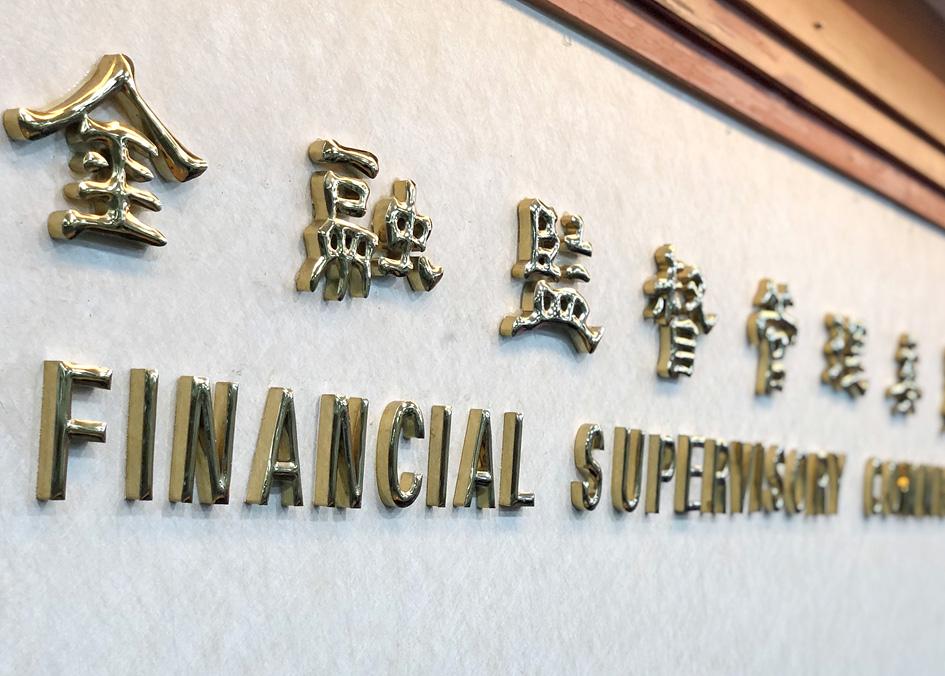Local banks’ combined profit grew in March, for the first time since May last year, thanks to an increase in investment gains and interest income, data released by the Financial Supervisory Commission on Thursday showed.
The banks’ combined pretax profits grew 76 percent year-on-year to NT$32 billion (US$1.15 billion) in March, ending 10 consecutive months of annual declines, the data showed.
Banks recorded an annual increase of NT$14.25 billion in combined investment gains as financial markets boomed, while their net interest income rose by NT$1.4 billion, the data showed.

Photo: Kelson Wang, Taipei Times
In the first quarter, banks’ pretax profits rose 10.9 percent year-on-year to NT$89.76 billion, it showed.
Domestic bank branches saw their combined pretax profits rise 25 percent year-on-year to NT$59.9 billion in the first quarter, accounting for 66.8 percent of all profits, while banks’ offshore banking units, overseas branches and operations in China reported annual declines of 3 percent, 23 percent and 55.5 percent in pretax profits respectively, the data showed.
Overseas branches’ declining profits could be attributed to several banks setting higher provisions for bad loans in Hong Kong, while fluctuating exchange rates between the Chinese yuan and US dollar caused a drop in profits at Chinese branches, the commission said.
Banks’ non-performing loans totaled NT$72.5 billion as of the end of March, up NT$1.8 billion from a month earlier, while their non-performing loan ratio remained flat at 0.23 percent, the data showed.

South Korea’s equity benchmark yesterday crossed a new milestone just a month after surpassing the once-unthinkable 5,000 mark as surging global memory demand powers the country’s biggest chipmakers. The KOSPI advanced as much as 2.6 percent to a record 6,123, with Samsung Electronics Co and SK Hynix Inc each gaining more than 2 percent. With the benchmark now up 45 percent this year, South Korea’s stock market capitalization has also moved past France’s, following last month’s overtaking of Germany’s. Long overlooked by foreign funds, despite being undervalued, South Korean stocks have now emerged as clear winners in the global market. The so-called “artificial intelligence

‘SEISMIC SHIFT’: The researcher forecast there would be about 1.1 billion mobile shipments this year, down from 1.26 billion the prior year and erasing years of gains The global smartphone market is expected to contract 12.9 percent this year due to the unprecedented memorychip shortage, marking “a crisis like no other,” researcher International Data Corp (IDC) said. The new forecast, a dramatic revision down from earlier estimates, gives the latest accounting of the ongoing memory crunch that is affecting every corner of the electronics industry. The demand for advanced memory to power artificial intelligence (AI) tasks has drained global supply until well into next year and jeopardizes the business model of many smartphone makers. IDC forecast about 1.1 billion mobile shipments this year, down from 1.26 billion the prior

Chinese artificial intelligence (AI) start-up DeepSeek’s (深度求索) latest AI model, set to be released as soon as next week, was trained on Nvidia Corp’s most advanced AI chip, the Blackwell, a senior official of US President Donald Trump’s administration said on Monday, in what could represent a violation of US export controls. The US believes DeepSeek will remove the technical indicators that might reveal its use of American AI chips, the official said, adding that the Blackwells are likely clustered at its data center in Inner Mongolia, an autonomous region of China. The person declined to say how the US government received

People stand in a Pokemon store in Tokyo on Thursday. One of the world highest-grossing franchises is celebrated its 30th anniversary yesterday.